Unregulated squid fishing activities ‘require urgent action,’ scientists say
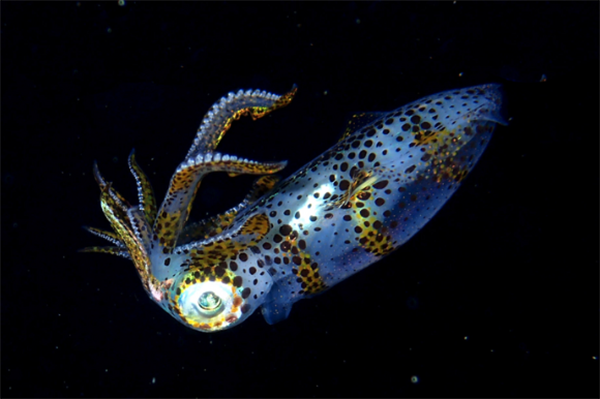
Scientists and policymakers have voiced growing concerns about the decline of global squid stocks, but little has been done to date to target squid fishing activities that are expanding into unregulated spaces, according to a new international study.
The study, which was published in Science Advances, explores the unregulated nature of global squid fisheries across three oceans over a three-year period, and how these fisheries continue to grow and shift locations beyond the jurisdiction of management bodies. The research was conducted through a partnership between Global Fishing Watch, the Australian National Centre for Ocean Resources and Security at the University of Wollongong, and the Japan Fisheries Research and Education Agency.
Using satellite imagery, vessel tracking and data monitoring, the study found that the fishing conducted by this globalized light-luring squid fishery was extensive – fishing between 149,000-251,000 vessel days annually – and that effort increased 68 percent over the study period from 2017 to 2020.
“These squid fisheries are highly mobile, fishing multiple oceans within a given year,” said Katherine Seto, lead author and an assistant professor of environmental studies at the University of California, Santa Cruz. “While some conservation and management measures are in place to regulate this type of fishing, our research found that actors may take advantage of these fragmented regulations to maximize resource extraction. To address this, we need to address the factors that promote the growth and expansion of fishing efforts and increase data sharing and communication between management entities.”
The study found that these squid fishing vessels fished largely (86 percent) in unregulated areas, equating to 4.4 million total hours of fishing time between 2017-2020. While unregulated fishing is not necessarily illegal, it presents challenges for fisheries sustainability and resource equity and has been connected to questionable human rights and labor practices.
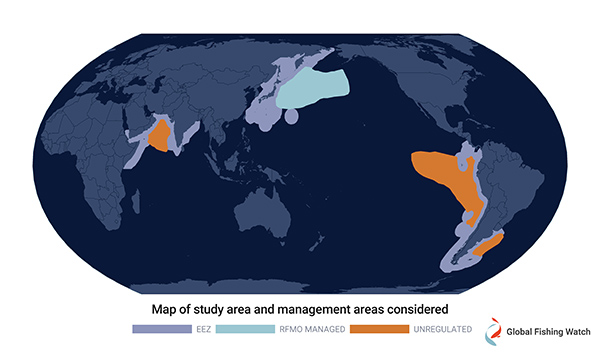
“By synthesizing data from multiple sources, we created a robust picture of the fishing activity of the high seas squid fleets,” said Nate Miller, head of applied research at Global Fishing Watch and co-author of the study. “Our analysis highlights the interconnectedness of fishing grounds used by the fleets. It demonstrates the critical importance of comprehensive data sharing agreements between regional bodies for improving understanding of the movements of these vessels and quantifying their impacts on squid stocks.”
One major challenge has been the vessels freely fishing between regulated and unregulated spaces, fishing huge amounts of squid with little to no oversight or data reporting. Fishing in unregulated areas has also steadily increased and seems to be preferred despite concerns over stock status, according to the study.
“These unregulated fishing activities require urgent action,” said Quentin Hanich, co-author and professor at the University of Wollongong. “They occur in our global commons, shared by all, yet few receive any benefit, and neighboring coastal States are increasingly concerned regarding the impact on their own shared fish stocks.”
Follow the Advocate on Twitter @GSA_Advocate
Now that you've reached the end of the article ...
… please consider supporting GSA’s mission to advance responsible seafood practices through education, advocacy and third-party assurances. The Advocate aims to document the evolution of responsible seafood practices and share the expansive knowledge of our vast network of contributors.
By becoming a Global Seafood Alliance member, you’re ensuring that all of the pre-competitive work we do through member benefits, resources and events can continue. Individual membership costs just $50 a year.
Not a GSA member? Join us.
Author
-
Responsible Seafood Advocate
[103,114,111,46,100,111,111,102,97,101,115,108,97,98,111,108,103,64,114,111,116,105,100,101]
Tagged With
Related Posts
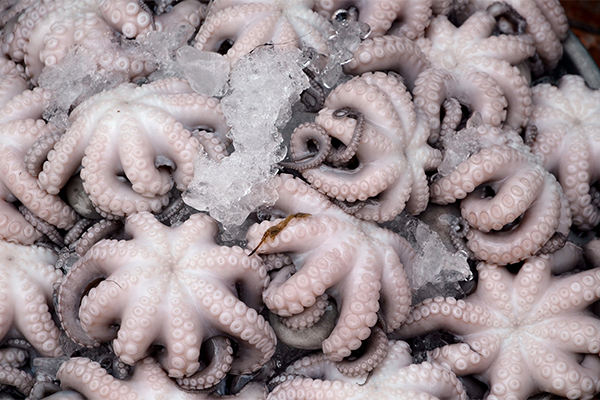
Fisheries
Research explores how international policy can best impact cephalopods
A new study identified how international policy can increase the sustainability of the global cephalopod food system.

Innovation & Investment
Could squid aquaculture fill the gap from declining cephalopod stocks in Japan?
With declining squid populations, researchers in Japan have developed the first aquaculture system with potential for commercialization.
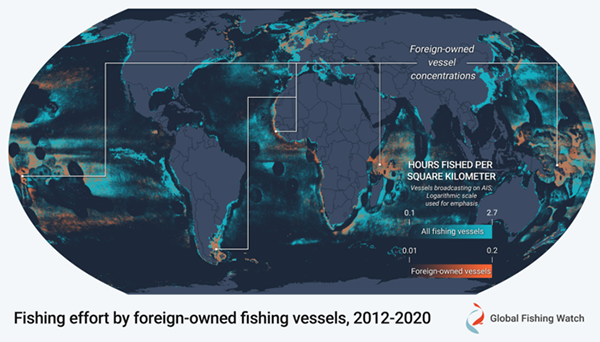
Fisheries
GPS data may identify potential IUU fishing behavior
A study led by Global Fishing Watch provides new insight into potential IUU fishing behavior that could help improve fisheries management.
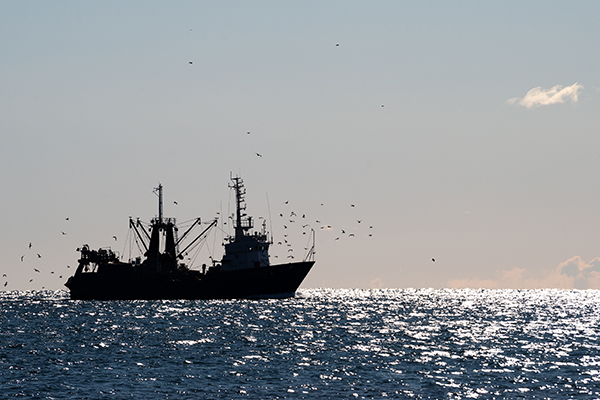
Fisheries
Global analysis of where fishing vessel tracking devices are disabled provides insights into IUU fishing
A new dataset of intentional disabling of identification devices by fishing vessels provides new insights into IUU fishing activities.



